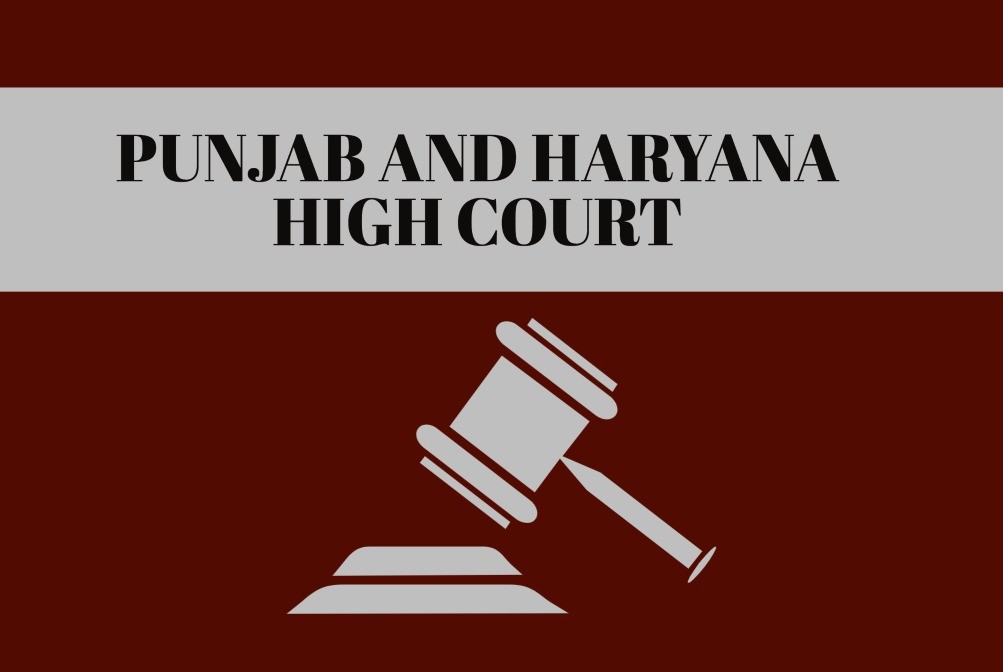Powers to quash prosecution can be invoked to set aside order declaring accused to be proclaimed offender, if it is required to achieve ends of justice & prevent abuse of process of law: P&H HC

Read Order: Rajan Saini and Others v. State of Haryana and Another
Monika Rahar
Chandigarh, March 4, 2022: While dealing with a quashing plea arising from a matrimonial dispute, the Punjab and Haryana High Court has held that it cannot be said that the powers to quash the prosecution is limited only to the matrimonial dispute alone and the same cannot be invoked to set aside the order declaring the petitioner to be proclaimed offender, in the event, the same is required to be exercised to achieve ends of justice and prevent the abuse of process of law.
Further, Justice Vivek Puri added that it may be true that the inherent powers under Section 482 Cr.P.C. cannot be exercised to quash the criminal proceedings where the offence is heinous, but in the event, the matter is overwhelmingly and predominantly of civil nature and particularly arising out of the matrimonial dispute, it shall be appropriate to quash the FIR and the entire subsequent proceedings to put a quietus to the matter.
The case stemmed from an FIR lodged under Sections 323, 354-A, 377, 498-A and 506 of the Indian Penal Code (Section 354-A IPC was deleted and Section 406 IPC was added later on), by a woman against her husband Rajan Saini and his family members. The Court was approached by the accused- petitioners with a quashing plea filed under Section 482 Cr.P.C. seeking quashing of the said FIR and other incidental proceedings, after the matter was compromised. A divorce decree was obtained between the first petitioner and his wife (the informant).
On being directed by the High Court, the Illaqa Magistrate prepared its report on the nature of the compromise and the report was indicative of the fact that the first petitioner was declared as a Proclaimed Offender. This order of proclamation was also sought to be quashed by the petitioners.
It was stated on behalf of the petitioners that no prosecution under Section 174-A of the Indian Penal Code was initiated against the first petitioner.
After hearing the counsel for the parties and going through the record of the case, the Court was of the considered opinion that it was a fit case for exercising the inherent jurisdiction of the Court under Section 482 Cr.P.C. to secure the ends of justice because the private parties arrived at an out-of-court settlement by way of compromise. The Court also found the compromise to be genuine.
On the legal position governing the quashing plea of the kind brought up in this case, the Court opined that although, the first petitioner was declared as proclaimed offender it could not be said that the powers to quash the prosecution was limited only to the matrimonial dispute alone and the same could not be invoked to set aside the order declaring the petitioner to be proclaimed offender, in the event, the same was required to be exercised to achieve ends of justice and prevent the abuse of process of law.
Regarding the factual scenario of the present controversy, the Court opined that the case was not heinous, the matrimonial dispute was sought to be amicably settled and the chances of conviction of the accused were remote and minimal.
Thus, it was concluded,“Although the petitioner was declared as a proclaimed offender but keeping in view the fact that an amicable settlement was effected, the entire subsequent proceedings which arose arisen out of matrimonial dispute should come to an end by exercising inherent powers of this Court in order to secure the ends of justice. In such a situation, the continuation of prosecution would result in sheer abuse of the process of law.”
In arriving that the above-stated decision, the Court found support in the case of Kulwinder Singh and others Vs. State of Punjab and another, 2007(3) RCR (Criminal) 1052 (P&H HC), upheld by the Apex Court in Gian Singh Vs. State of Punjab and others, (2012) 10 SCC 303 and Narinder Singh and others Vs. State of Punjab and another, 2014(6)SCC 466.
Thus, to secure the ends of justice, the FIR along with subsequent proceedings arising from it including the order declaring the first petitioner as a proclaimed offender, were quashed.
Sign up for our weekly newsletter to stay up to date on our product, events featured blog, special offer and all of the exciting things that take place here at Legitquest.




Add a Comment